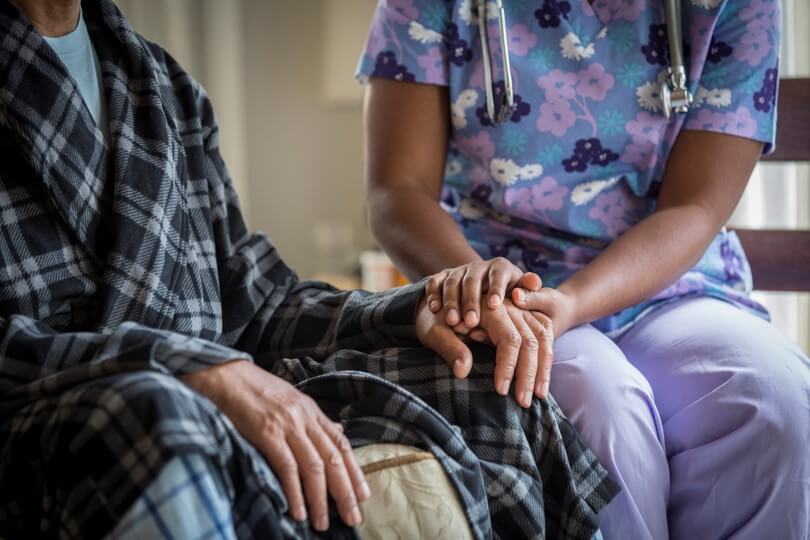Laredo Health Department, UT Education and Research Center to assist recruitment.
Contact: Will Sansom, (210) 567-2579, sansom@uthscsa.edu
LAREDO (Oct. 28, 2021) — The University of Texas Education and Research Center at Laredo will be a site for a nationwide study that seeks to understand why some people have prolonged symptoms (referred to as long COVID) or develop new or returning symptoms after the acute phase of SARS-CoV-2 infection. The Laredo Health Department will play an important role in recruiting area residents to the study.
 Researchers at The University of Texas Health Science Center at San Antonio, who see patients at University Health, will enroll 900 adult COVID-19 survivors from the San Antonio and Laredo areas in the study, which is called “Prevention, Evaluation and Incidence of Long-Term COVID in South Texas” (PREVAIL South Texas). This study is part of the National Institutes of Health (NIH) “Researching COVID to Enhance Recovery” (RECOVER) Initiative.
Researchers at The University of Texas Health Science Center at San Antonio, who see patients at University Health, will enroll 900 adult COVID-19 survivors from the San Antonio and Laredo areas in the study, which is called “Prevention, Evaluation and Incidence of Long-Term COVID in South Texas” (PREVAIL South Texas). This study is part of the National Institutes of Health (NIH) “Researching COVID to Enhance Recovery” (RECOVER) Initiative.
UT Health Science Center San Antonio, the two Laredo partners and University Health comprise the only Texas site in the RECOVER Initiative’s implementation phase and one of only 17 research hubs throughout the U.S. The health science center is projected to receive $15 million from NIH during up to four years of patient follow-up.
The most common lingering symptoms include pain, headaches, fatigue, “brain fog,” shortness of breath, anxiety, depression, fever, chronic cough and sleep problems.
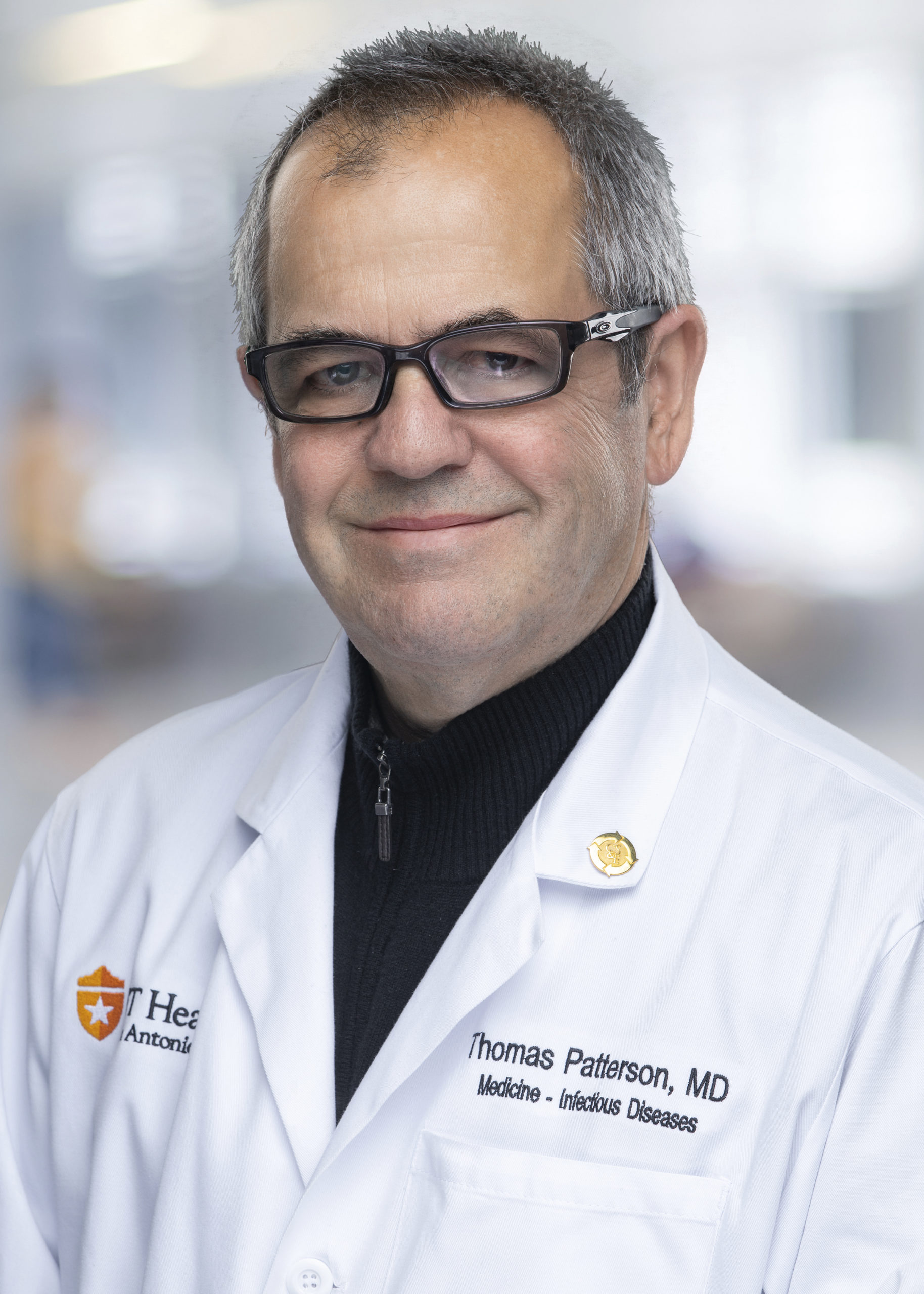
“How frequent is it? How long does it last? What makes it better? This study will answer a myriad of questions about the post-acute sequalae of COVID-19 (called PASC). We will reach out to community partners including the Laredo Health Department and University Health to recruit survivors, especially in the Latinx population that has been so heavily and disproportionately impacted by COVID-19,” said PREVAIL South Texas Principal Investigator Thomas Patterson, MD, an infectious diseases specialist and professor of medicine in the health science center’s Joe R. and Teresa Lozano Long School of Medicine. He also leads COVID-19 infectious diseases care at University Health.
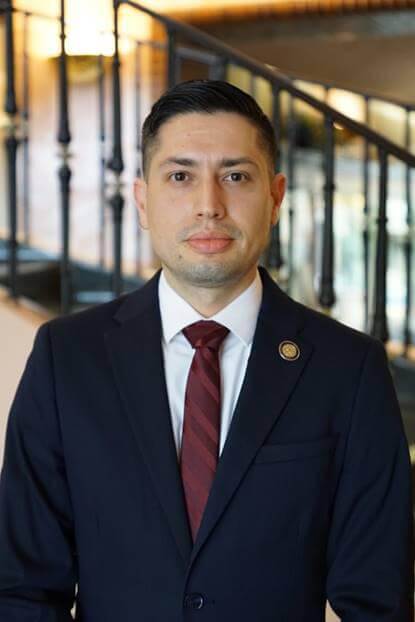
“Laredo was once identified as having the worst COVID-19 risk and infection rates in the country; however, our prevention and outreach efforts resulted in Laredo having the highest fully vaccinated rate per capita in Texas, helping our community keep safe,” said Richard A. Chamberlain, health director of the Laredo Health Department.
“The number of infections experienced in Laredo and their long-term effect is concerning,” Chamberlain said. “This award and research opportunity is much needed for our medically underserved community and the long-term assessment of health and well-being post COVID-19. Thank you, UT Health Science Center San Antonio, for prioritizing our community to provide key insight on COVID research.”
Adriana Nunemaker, executive director of The University of Texas Education and Research Center at Laredo, said: “This monumental research, funded by the National Institutes of Health, brings much hope for those experiencing persistent side effects of the COVID-19 viral infection. People want to know why they still feel poorly and, more importantly, they want to feel better. I am certain that much will be learned and am delighted that Laredo was selected to participate in this study. It is my pleasure to welcome this amazing team of research investigators from The University of Texas Health Science Center at San Antonio to conduct their research at the UT Center at Laredo.”
Delta variant’s role
In keeping with recent trends, PREVAIL South Texas will include a strong focus on assessing long COVID in those with the delta variant and in previously immunized individuals.
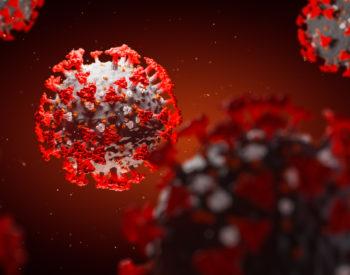 “Research is needed to address emerging questions such as, ‘What are the long-term consequences for people who have new variants like delta?’ and ‘What happens with people who develop COVID-19 infection despite prior vaccination?’” Dr. Patterson said. “We already know breakthrough infections aren’t that common, and vaccination dramatically reduces the risk of hospitalization and death.”
“Research is needed to address emerging questions such as, ‘What are the long-term consequences for people who have new variants like delta?’ and ‘What happens with people who develop COVID-19 infection despite prior vaccination?’” Dr. Patterson said. “We already know breakthrough infections aren’t that common, and vaccination dramatically reduces the risk of hospitalization and death.”
Investigators from many disciplines at the health science center and University Health will study how best to treat the broad spectrum of PASC that manifests in the most-affected patients and to prevent or limit symptom onset in others, Dr. Patterson said.
UT Health Science Center San Antonio, the two Laredo partners and University Health are among the centers in the adult recovery study cohort. Children will be studied at other centers.
Learning the scope of the problem
The PREVAIL South Texas team will administer questionnaires to participants on a quarterly basis to document how they are feeling. From that starting point, other investigations will ensue.
 “Groups of patients will undergo more intensive study depending on the symptoms they report,” Dr. Patterson said. “If fatigue is particularly important in a subset of people, those individuals will have specific tests to learn more about it. If the main issue is pain, the testing will be geared to that. Each line of testing will be different, depending on the primary symptom or cluster of symptoms the patient is having.”
“Groups of patients will undergo more intensive study depending on the symptoms they report,” Dr. Patterson said. “If fatigue is particularly important in a subset of people, those individuals will have specific tests to learn more about it. If the main issue is pain, the testing will be geared to that. Each line of testing will be different, depending on the primary symptom or cluster of symptoms the patient is having.”
Brain fog and other neurological symptoms have been documented in patients who recovered from COVID-19. A small group of PREVAIL South Texas participants will have intensive workups including magnetic resonance imaging (MRI) and spinal taps to understand what causes these symptoms to develop or persist in some patients.
“Impaired cognition and loss of smell are present in a significant number of individuals following the acute phase of COVID-19 disease,” said Gabriel de Erausquin, MD, PhD, a neurologist with the health science center’s Glenn Biggs Institute for Alzheimer’s and Neurodegenerative Diseases. “We will continue to assess the scope of this problem in our study participants in Laredo and San Antonio.”
Health science center faculty seeing patients at University Health will also examine:
- Social determinants, such as ethnicity and income, and how they might impact PASC and its persistence.
- Psychological disorders induced by COVID-19 disease.
- Metabolic issues and dysfunction of cellular power plants called mitochondria.
- Organ injury, with emphasis on the heart, lung and kidney.
Springboard to further investigations
The RECOVER Initiative of NIH will follow participants and collect samples that then are used to support science that is funded outside the initiative, Dr. Patterson said.
Mark Goldberg, MD, a PREVAIL South Texas co-principal investigator from the health science center, said investigators will not wait until the four-year follow-up period ends to start these additional studies. “As soon as we have data, scientists will start working,” he said. “Once we understand the scope of the problem, NIH wants interventional studies to follow closely behind the RECOVER Initiative, or maybe not even behind.”
Post-COVID recovery in Latinx families
Both Dr. Patterson and Dr. Goldberg said PREVAIL South Texas is uniquely poised to serve the Latinx population, including the border population in Laredo.
 “We have a strong track record of community engagement for South Texas communities, so we know that we can get the message out about this important initiative,” Dr. Goldberg said.
“We have a strong track record of community engagement for South Texas communities, so we know that we can get the message out about this important initiative,” Dr. Goldberg said.
“Patient input is key,” Dr. Patterson said. “It is very important to engage the community to make sure that this study of post-COVID recovery is done in a way that best addresses their needs. We are doing this for the families of our state.”
PREVAIL South Texas co-principal investigator Barbara Taylor, MD, MS, agreed. “We will be part of a national effort to rigorously define what sorts of consequences COVID-19 can have long term for all sorts of different people, including our South Texas population,” said Dr. Taylor, an infectious disease specialist who is associate professor of medicine and assistant dean for the MD/MPH program in the Long School of Medicine and infectious diseases clinician and researcher at University Health, as well.
“Hopefully we will pave the way not just for better understanding these post-COVID-19 sequalae, but also treatments, prevention and all the things that we want to do to reduce the impact of COVID-19 in our communities,” Dr. Taylor said.
Vaccination and benefit
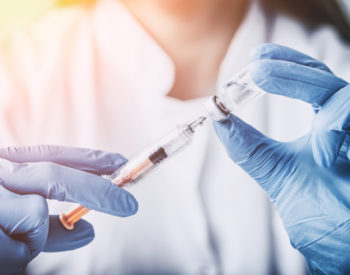 One of today’s front-burner questions is whether COVID-19 vaccination protects recipients against long COVID, and one would hope that it does, Dr. Taylor said.
One of today’s front-burner questions is whether COVID-19 vaccination protects recipients against long COVID, and one would hope that it does, Dr. Taylor said.
“We know that people who are vaccinated have less severe disease, and we definitely know that having more severe disease predisposes people to long COVID,” she said. “Hopefully there is a protective effect of the vaccines against the sequalae, but we do not know that yet, so we can’t promise it. We have to be as rigorous as possible before we jump to conclusions. This study is a step toward doing that.”
The RECOVER Initiative cohort studies, funded by NIH at nearly $470 million, are addressing a potentially massive, long-term public health problem. The U.S. Centers for Disease Control and Prevention data tracker in October reported that the nation had reached 45 million cases of COVID-19 since the pandemic began. Millions of other cases undoubtedly have gone untested and unreported.
“If there are 100 million people who have had COVID-19 nationwide, even if 5% get these complications, that’s a lot of people,” Dr. Goldberg said.
For more information about the PREVAIL South Texas study, call 210-567-5262 or visit RECOVER-TX.ORG.
The University of Texas Health Science Center at San Antonio, also referred to as UT Health San Antonio, is one of the country’s leading health sciences universities and is designated as a Hispanic-Serving Institution by the U.S. Department of Education. With missions of teaching, research, patient care and community engagement, its schools of medicine, nursing, dentistry, health professions and graduate biomedical sciences have graduated 39,700 alumni who are leading change, advancing their fields, and renewing hope for patients and their families throughout South Texas and the world. To learn about the many ways “We make lives better®,” visit www.uthscsa.edu.
Stay connected with The University of Texas Health Science Center at San Antonio on Facebook, Twitter, LinkedIn, Instagram and YouTube.
To see how we are battling COVID-19, read inspiring stories on Impact.


